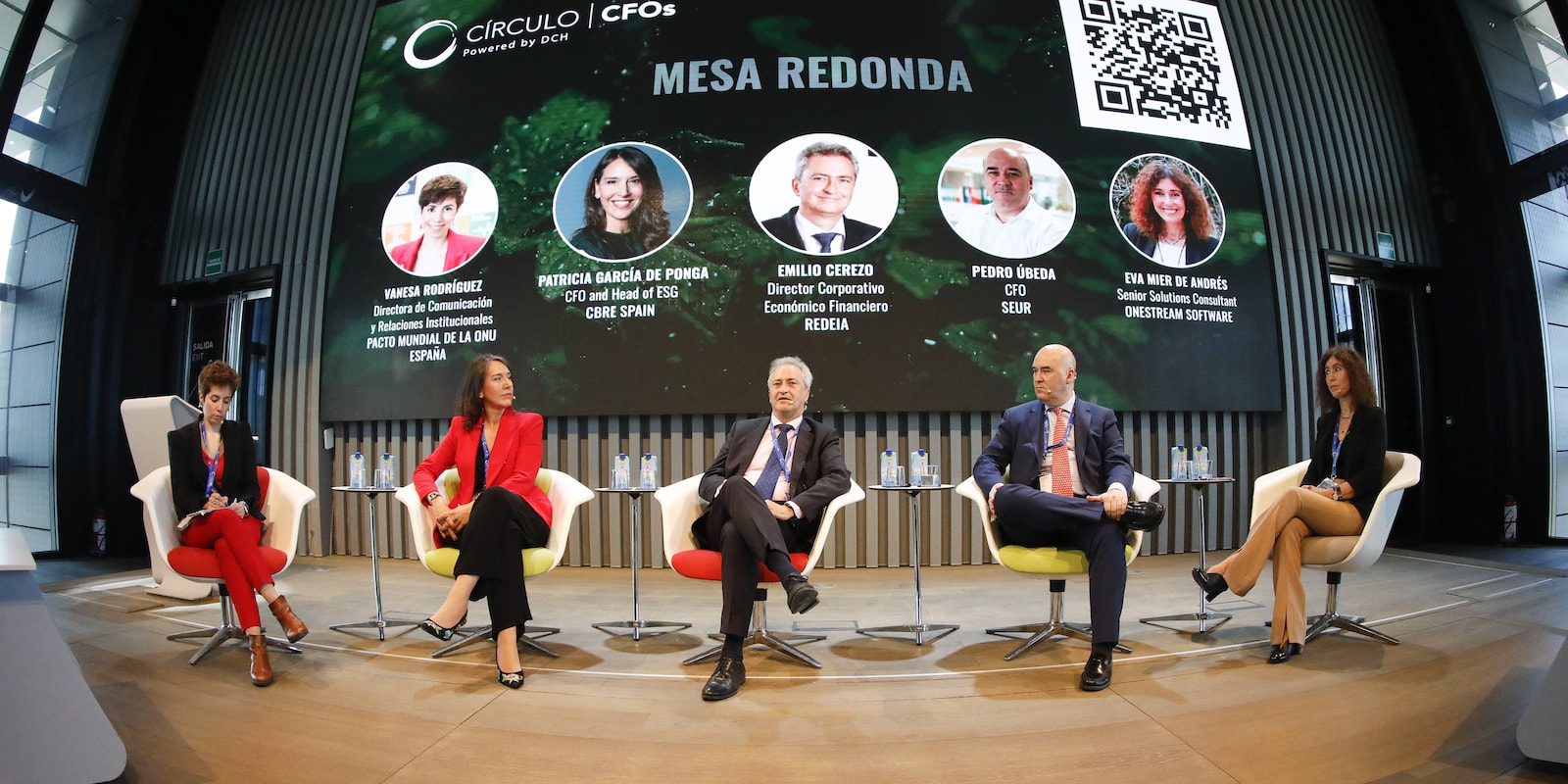Thursday, March 23, 2023
It is obvious that making changes in some of our habits will have positive effects on the planet. In addition, society and companies are increasingly aware that, along with this responsibility, there are economic benefits to be found.
By José Miguel Pascual Labrador. Photo by EFE/David Fernández.
For some years now, the ESG acronym has been present in the decision-making process of companies in all sectors. Representing the Environmental, Social and Governance concept, each letter stands for a field: E covers the environmental factor; S, the impact and respect for Human Rights; while G encompasses the effects of good governance on management, related to issues such as the structure of boards of directors, shareholder rights, and transparency.
Consequently, during the 1st CFO Summit, held at Cepsa's headquarters in Madrid, a panel of experts analyzed the keys for financial management to bolster responsible management. And in this context, the 'ESG: towards sustainable finance' panel discussion focused on how these criteria are being implemented in companies, becoming one of the primary references when investing and how environmental viability is also a pivotal point in their action plans.
José Ángel Mateo, experienced manager at NTT Data, explained that the new awareness of sustainability influences decision making. According to a study by his company, with data from 2021, 96% of large companies have ESG reporting, as it gives them brand recognition, and they want to be aligned with regulatory requirements.
To explain the importance of this trend, Mateo added that almost 65% of employees prefer to work in an organization that defines itself as truly sustainable; and that 94% of banks consider ESG as a strategic priority and, therefore, a reason to obtain better financing conditions.
The value of reality in ESG
But once it is clear what these criteria are, do we know who determines them? The United Nations (UN) was one of the first institutions to publish a text on responsible investment principles. This paper broke down how it is possible to create a model that rewards long-term activity and benefits both the environment and society.
Senior solutions consultant at OneStream Software, Eva Mier de Andrés, commented that regulators and consumers are requesting more information in this area, creating "a new pressure for the CFO." For her, this phenomenon must involve companies being honest in their willingness to make a positive impact, "it is not enough to appear green without measurements. You must have tangible metrics."
Along these lines, emerging technologies such as machine learning models are changing the analysis of sustainability plans. The financial director at SEUR, Pedro Úbeda, acknowledged that "if you want to make a cultural change, you cannot isolate one variable, but rather integrate it into everything else." For the moment, Úbeda commented that there is still some way to go because, for example, corporate customers would pay extra for "a green delivery," but at the moment, individuals "are not willing to pay more for that."
Profitability vs. Sustainability
"We have to look for profitability in every penny because, even though we are the market leader, we only have 15% of the market. When we invest with ESG criteria, we have to aim for the shares to be profitable," said the SEUR executive.
Green bonds are a financing instrument that the panel identified as a great tool to make investments toward the energy transition a reality. The Government of Spain itself, to increase transparency on national environmental objectives and policy, launched the Green Framework of the Public Treasury in 2021, which was intended to be a structural component of its financing policy.
The corporate economic and financial director at Redeia, Emilio Cerezo, endorsed green bonds as the suitable instruments to decarbonize the economy and society. In fact, at the beginning of the year, the company established the terms and conditions of a hybrid green bond in the amount of 500 million euros, which for Cerezo reflects the commitment of the 2021-2030 National Integrated Energy and Climate Plan (PNIEC). This roadmap aims to reduce greenhouse gas emissions by 23% compared to 1990.
In this regard, energy companies have joined the adoption of sustainable syndicated loans, such as the one signed by Cepsa last October, for 2 billion euros, based on ESG criteria. For Carmen de Pablo, Cepsa's Chief Financial, Strategy, and ESG Officer, who also participated in the Summit, "Cepsa's first sustainable financing shows our determination to align our financial and sustainability objectives, placing them at the center of our financing and investment decisions, in addition to our daily operations."
Finally, the financial and ESG director at CBRE Spain, Patricia García de Ponga, described the situation of one of the sectors most closely linked to sustainability: the real estate market. For her, the impact on the value of real estate with these green criteria is "the million-dollar question."
"Investors are asking much more about these criteria and, since the pandemic, the trend has been consolidated," she analyzed in her talk, adding that it is already one of the factors capable of increasing the price of rent, by at least 20% more in buildings in line with sustainability criteria than not aligned with them.
In her analysis, she warned that the Spanish housing stock is old, only 5% is efficient, and environmental investments must be increased so that the energy transition also reaches one of the most critical spaces in society—homes.
¿Te ha parecido interesante?





